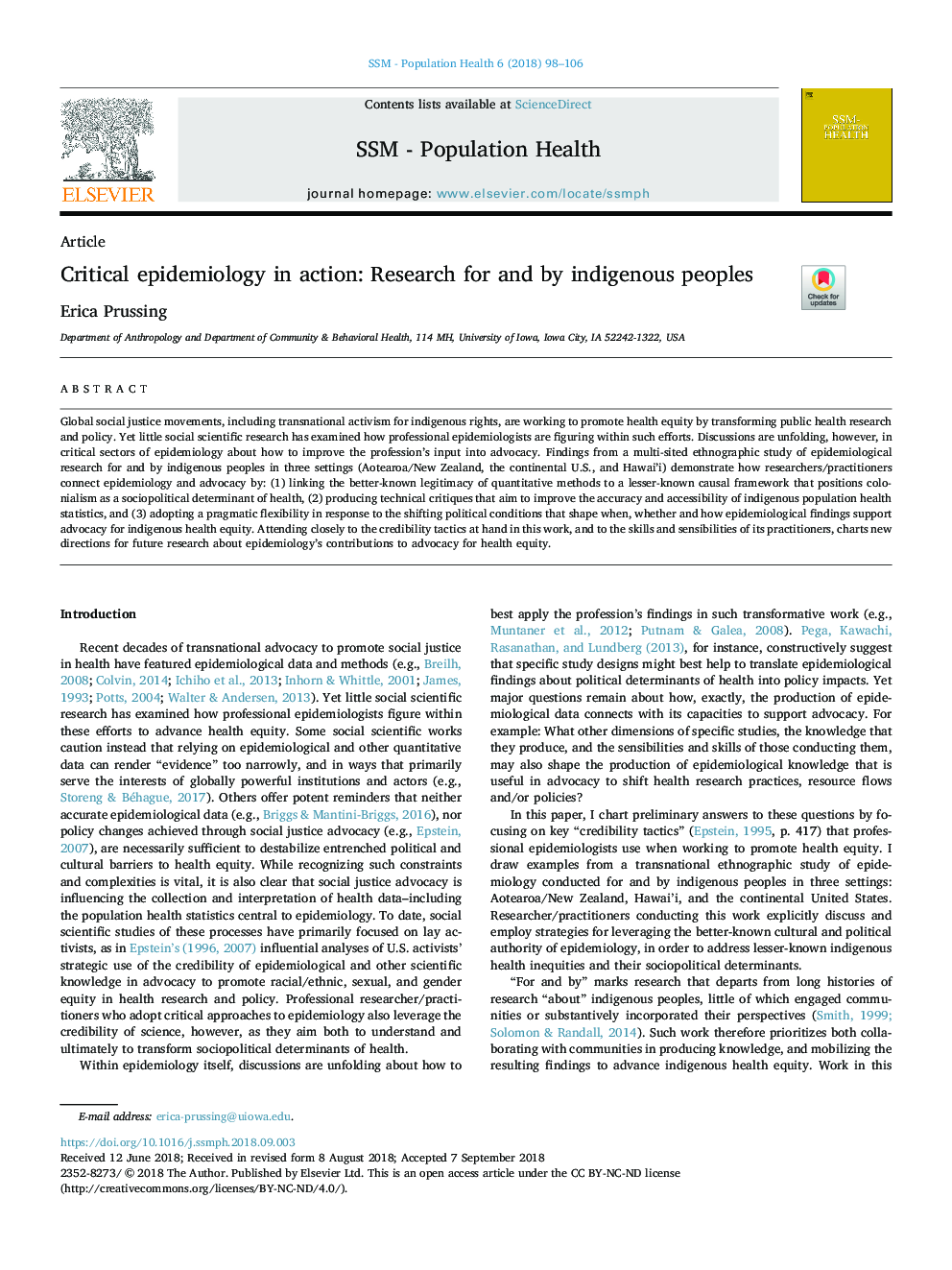| Article ID | Journal | Published Year | Pages | File Type |
|---|---|---|---|---|
| 9953290 | SSM - Population Health | 2018 | 9 Pages |
Abstract
Global social justice movements, including transnational activism for indigenous rights, are working to promote health equity by transforming public health research and policy. Yet little social scientific research has examined how professional epidemiologists are figuring within such efforts. Discussions are unfolding, however, in critical sectors of epidemiology about how to improve the profession's input into advocacy. Findings from a multi-sited ethnographic study of epidemiological research for and by indigenous peoples in three settings (Aotearoa/New Zealand, the continental U.S., and Hawai'i) demonstrate how researchers/practitioners connect epidemiology and advocacy by: (1) linking the better-known legitimacy of quantitative methods to a lesser-known causal framework that positions colonialism as a sociopolitical determinant of health, (2) producing technical critiques that aim to improve the accuracy and accessibility of indigenous population health statistics, and (3) adopting a pragmatic flexibility in response to the shifting political conditions that shape when, whether and how epidemiological findings support advocacy for indigenous health equity. Attending closely to the credibility tactics at hand in this work, and to the skills and sensibilities of its practitioners, charts new directions for future research about epidemiology's contributions to advocacy for health equity.
Related Topics
Social Sciences and Humanities
Social Sciences
Health
Authors
Erica Prussing,
